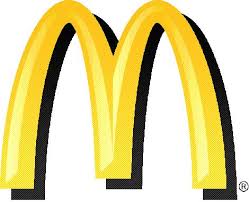
Frank Rich strolls down Memory Lane today and takes us through the dubious ten-year period which never quite acquired a nickname or handle, although the "Aughts" probably came closest. Rich describes 2001-2010 as a kind of Age of Frauds, beginning with Enron and finishing up with Tiger Woods, stopping along the way to note the misrepresentations used to sell the Iraq War, steroids in sports and Bernie Madoff. One must be loath, of course, to write off any particular ten-year period of life. If we're granted by the Good Book three score and ten, then ten years are more than 14% of the Whole Enchilada. Anyway, good or bad, it's all interesting, isn't it? Your individual ten years had lots of particular events, joys, surprises, passions, disappointments, tragedies and moments of grace which are completely unrelated to these more general societal trends. In my own life, I think about those individualized experiences much more than I spend bemoaning the fakeries of public life.
I've been reading a book by Kevin Starr concerning the history of California in the immediate post-war period, 1950-1963, which happens to coincide with my own childhood in that very state. In 1950 California had a population of about ten million people. These days, we can't really be sure how many people live here, but the best estimates put the number somewhere around 35 million, or more than 10% of the national population. The place looks like it too, believe me. I watched a lot of it happen. It always seemed strange to me that a state on the far western shore, the greatest distance from the region where the country originated, should always have been in the vanguard of societal changes, but that's the way things have worked. As Exhibits A & B, I offer McDonald's and Disneyland. The McDonald brothers opened their first store in San Bernadino in the early 1950's. My father's brother lived in San Gabriel during that period (working in the aeronautics industry as one of the "Aviation Okies," as Ernie Pyle called them), and I can remember a visit down to see his family in the pre-catalytic converter days when the acrid air stung your eyes mercilessly there in that smog canyon near Pasadena. He told me and my brothers that there was a restaurant near his house where you could buy a hamburger for 15 cents, and we had to see it. I can recall being impressed. And then we had to make another trip in 1955 or so, the year Disneyland opened. The biggest thrill for me was when my dad took me on Autopia and I drove an electric car through the loops. Here we are 54 years later trying to find our way back to electric cars.
California took the Levittown principle of prefabricated neighborhoods and applied it to the vast tracts of land available in Northern and Southern California. The area east of Los Angeles known as the Inland Empire (larger than Connecticut, Rhode Island and Delaware combined) grew up virtually overnight during the go-go days of the post-war boom. My own neighborhood was built on filled-in land over what was once San Francisco Bay. The Bay itself is only two-thirds of its original size as a result of encroachment from every point on the compass. Growing up on land reclaimed from water, in an artificial atmosphere of streets laid out on a preconceived grid, with minimalist amenities such as a "park," a shopping center standing in for a "downtown," a centrally located school, and no real open space whatsoever where nature might be said to thrive, I was inured from earliest memories to the idea of artifice and abstraction. I thought that's what America was, in essence. A fantastically elaborated artifact of suburban planning.
Trips to L.A. as a kid never disturbed this conception; indeed, it gave me a glimpse where we were headed. But occasional journeys (usually by train on the old Santa Fe) to the Deep South, where the family lines originated, let me see a more "organic" approach to living. Towns that grew naturally, where there were no sidewalks and blocks of houses were interspersed with small farms. What I didn't know then, but found out later, was that California was on the way East, and the franchising, chain-store, homogenizing pervasiveness of the Golden State would become the societal norm. Sorry about that. And beyond the backwash eastward in the U.S., you can now see the same influences in Europe and elsewhere around the globe. It seems to be one of those phases that civilization needs to live through in order to recognize as a mistake. Without knowing it in 1954, I guess, I was one of Christopher Columbus's advance scouts for the New World.
Those houses built in the 1950's weren't really built to last, but they did last, and now they're going through their demographic changes. The lily-white neighborhood I grew up in is now 64% Hispanic. California is effectively bankrupt, arguably more than the federal government since the state can't actually engage in deficit financing. So once again, California marks the path toward the future.
So relax, Mr. Rich. It's not as if all these artificial phenomena are really something new. It's a destiny, actually, this American embrace of the fraudulent and meretricious. Besides, even in California, real life goes on. Wasn't it Oscar Levant who said about Hollywood that if you dig down beneath the tinsel, you come to the real tinsel?

![]()

![]()

![]()

